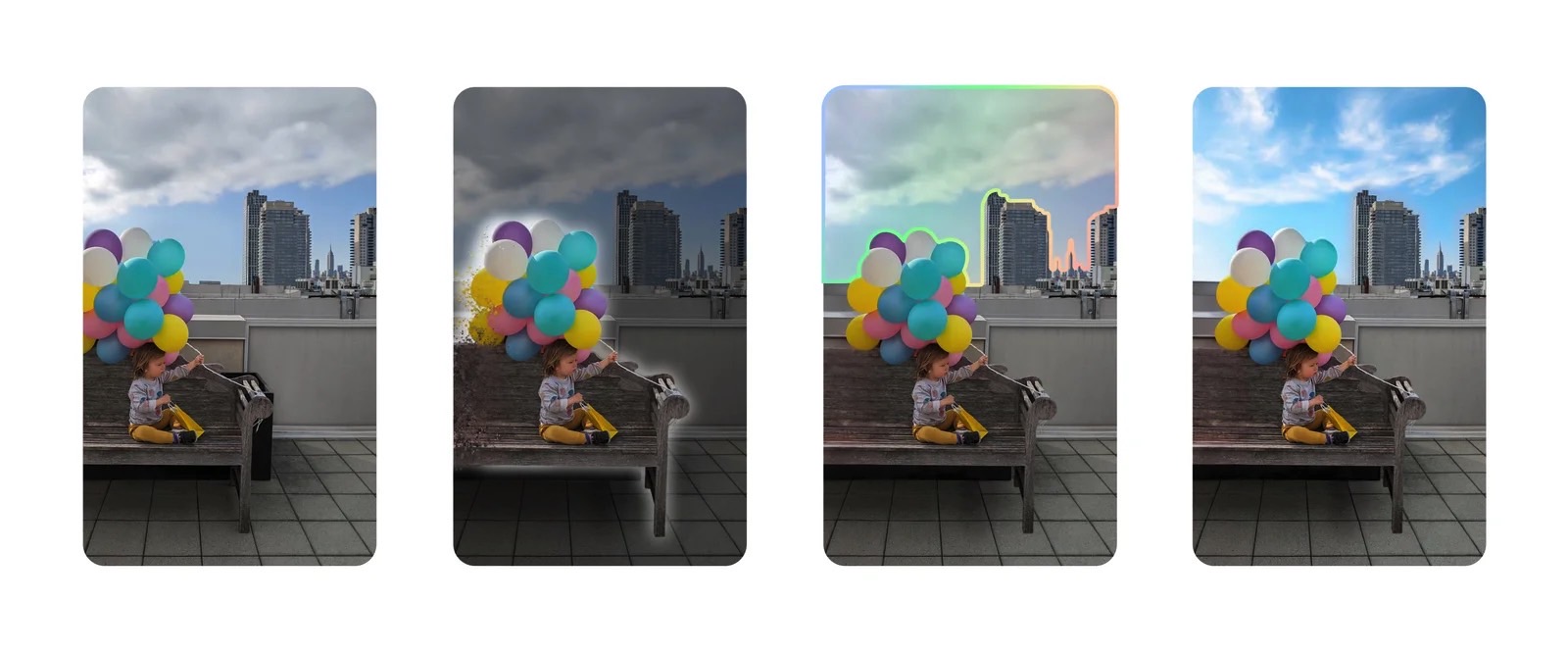Google will unveil the Pixel 8 series next week, and we already know everything about the upcoming phones. It’s not just because we saw a garden variety of Pixel 8 and Pixel 8 Pro leaks in the previous months and that Pixel leaks are almost always correct. It’s because an insider got their hands on Google’s official marketing materials for the two phones, dumping screenshots online of all the information Google will use on its Pixel 8 pages.
That’s how we learned the full specs and features of the handset and how we learned the Pixel 8 series will get up to 7 years of software updates. Also, the amazing Pixel 8 preorder deals coming your way next week. No, Google will not raise prices significantly.
But in the deluge of Pixel 8 information that dropped online in the past few days, there was a video that confirmed that Google is employing an annoying AI-powered camera feature. Google will let you use the Pixel 8 models to remember special moments from your life that never happened. That’s possible with a camera tool that Google announced back in May called the Magic Editor.
Magic Editor was one of the AI products that Google unveiled at I/O 2023, and I told you at the time that I already hated it. It’s an expansion of the Magic Eraser feature that was already bending reality in photos by letting you remove objects or people ruining your shots.
Magic Editor will now let you change the appearance of the sky and move things around in photos. That’s well beyond what Magic Eraser can do. And it’s incomparable with the edits you’d usually perform for Instagram purposes, where you might change the lighting, colors, or warmth of the image.
Magic Editor will help you record fake photos of things you wish happened that way but didn’t. Or pictures of memories you weren’t quick enough to capture when they did happen.

I didn’t think it could go worse, but wait until you see how Google will promote the AI photo-altering tech coming to the Pixel 8.
Insider Kamila Wojciechowska and 91mobiles posted a video that demos the various camera features coming to the Pixel 8.
Features like Night Sight for video, a Video Boost mode for smoother pictures, and a video noise remover tool are all part of the Pixel 8 camera package shown in the video. But it’s the Magic Editor feature that both impresses and annoys me.
Google’s example includes a family taking photos at a carousel. Unsurprisingly, the picture doesn’t come out well initially. Make that the photos — plural. Because the Pixel 8 takes multiple imperfect shots where the subjects aren’t looking at the camera at the same time.
Then, AI lets you combine the shots so you can manually adjust the heads of the family members so they all look at the camera. You’re practically cutting heads from one photo and pasting them in another.
That’s incredible AI tech at play right there, and the results should be amazing. But those results show moments from the past that never happened. The memory you just recorded, which you’re about to share with everyone, is a fake AI creation. And the more you use Magic Editor that way, the more you’d contribute rather than help fix some of the issues with AI: Hallucinations and misleading information.
Many people worry that AI can alter the fabric of reality by making users believe stuff that isn’t real. And now Google is making it incredibly easy to take fake photos using its high-end Pixel 8 phones. You’ll say the example above is innocent, and it’s true. But if Magic Editor works that well, I’d expect others to abuse it in other ways.

I’ll also highlight another issue with the Pixel 8’s reality-altering photography powers. If Google encourages you to take fake photos, then who knows what other vendors might do.
Remember that Samsung has been misleading Galaxy owners with its moon photography capabilities for years. And the company used AI-enhanced imagery to practically advertise the superior night photography of its Galaxy phones.
Then again, what Google does with Magic Editor is bigger than the Pixel 8 series. It’s about showcasing its AI powers in a race where it still feels like it’s trailing OpenAI’s ChatGPT.
To fix the problem it’s creating, Google could automatically mark altered photos as AI-enhanced and prevent the user from removing that information. That way, everyone would appreciate Google’s impressive AI photography skills while immediately understanding that the photos aren’t real.







